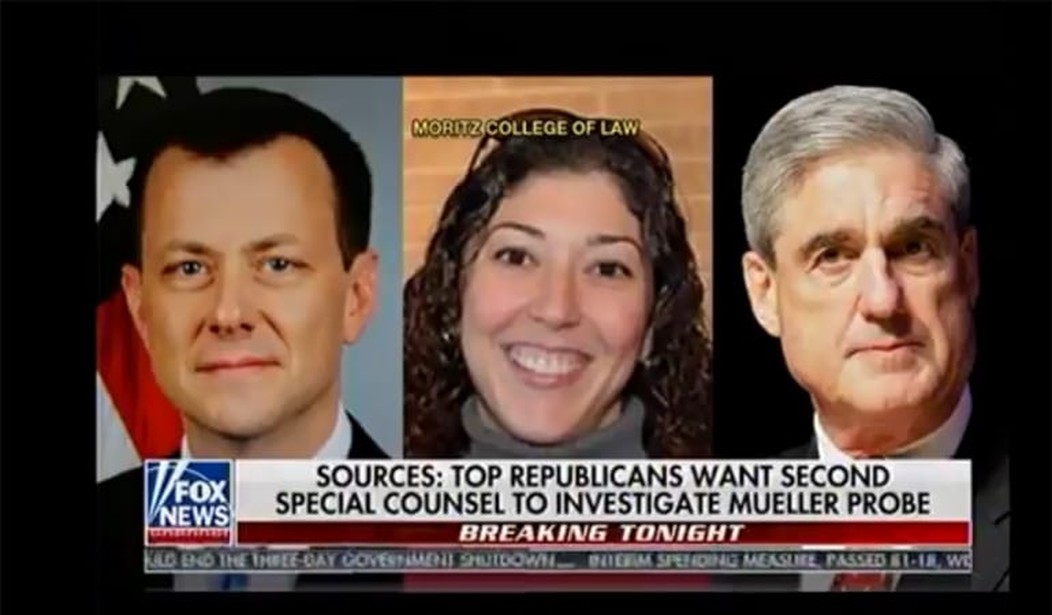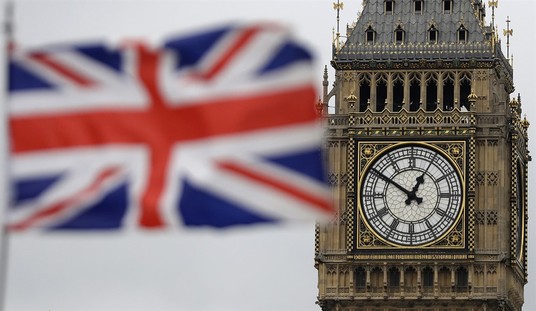Newly released documents obtained by Congress reveal an “apparent systemic culture of media leaking” among high-level FBI and Justice Department officials, Rep. Mark Meadows (R-N.C.) charged in a letter to Deputy Attorney General Rod Rosenstein Monday.
In the letter, Meadows said a review of the new documents raised “grave concerns” that the officials were leaking unverified material related to ongoing investigations to the press in an effort to damage President Trump early in his presidency.
Two text messages, in particular, exchanged in April 2017 between now-fired FBI agent Peter Strzok and former FBI attorney Lisa Page, raised alarm bells, according to Meadows, who serves on the House Oversight Committee.
“I had literally just gone to find this phone to tell you I want to talk to you about media leak strategy with DOJ before you go,” Strzok texted Page on April 10, 2017.
Two days later, Strzok wrote back to his paramour, “Well done, Page,” and told her that two negative articles — one worse than the other — would soon drop about Page’s “namesake,” an apparent reference to Carter Page, Trump’s former campaign adviser. The FBI surveilled Carter Page for months after obtaining a warrant from the Foreign Intelligence Surveillance Act (FISA) court in October of 2016.
NEWS: We’ve received NEW text messages from the DOJ, once again suggesting our suspicions are true–senior officials at FBI/DOJ selectively leaked info to the media about ongoing investigations related to the Trump admin.
We just sent this letter to DAG Rod Rosenstein. pic.twitter.com/FgF3f2wM0f
— Mark Meadows (@RepMarkMeadows) September 10, 2018
The text message exchanges “should lead a reasonable person to question whether there was a sincere desire to investigate wrongdoing or to place derogatory information in the media to justify a continued probe,” said Meadows, who is also chairman of the Freedom Caucus.
One of the negative stories mentioned in the texts appeared in the Washington Post on April 11, 2017: “FBI obtained FISA warrant to monitor former Trump adviser Carter Page,” by Ellen Nakashima, Devlin Barrett, and Adam Entous.
Citing “law enforcement and other U.S. officials,” the authors wrote that the DOJ and FBI had convinced a FISA judge there was “probable cause to believe Page was acting as an agent of a foreign power, in this case Russia.” It has since been revealed that the FISA warrant relied heavily on the unverified dossier written by ex-British spy Christopher Steele and funded by the Democratic National Committee and Hillary Clinton campaign. Even though his name was dragged through the mud for a year, Carter Page was never charged with a crime.
In his letter, Meadows pointed out that the Post’s reporting triggered “a flurry of articles suggesting connections between President Trump and Russia.”
The leaks involved other outlets in addition to the Washington Post, Meadows wrote. FBI and DOJ officials, including DOJ prosecutor and top Robert Mueller deputy Andrew Weissmann, met with several Associated Press reporters in April 2017, according to court filings in the Virginia federal trial of Trump’s former campaign chairman Paul Manafort.
The leaks to the media continued even as FBI attorneys cited the U.S. Attorney’s Manual in telling Congress that witnesses could not answer questions about pending probes, Meadows wrote.
There is “troubling evidence” that the FBI and DOJ continue to coordinate leaks to the media, Meadows said. While those disclosures may not be unauthorized, he added, they still compromise the appearance of impartiality at the bureau.
The congressman demanded that the DOJ turn over additional emails and text messages from a number of other senior DOJ and FBI officials.
“In light of the new information, our task force is requesting to review text messages, emails, and written communication form FBI and DOJ officials Stu Evans, Mike Kortan, and Joe Pientka between June 2016 to June 2017,” Meadows wrote. “To be clear, we are not suggesting wrongdoing on the part of Evans, Kortan, and Pientka— and, in fact, previously reviewed documents suggest that some of these individuals may share the committees’ same concerns.”
“However, these additional documents, with an emphasis on communication between the aforementioned individuals and Peter Strzok, Andrew McCabe, Lisa Page, Bruce Ohr, and Andrew Weissmann, would provide critical insight into the backdrop of the Russia investigation.”
President Trump is expected to agree to a longstanding request by the House Judiciary and Intelligence Committees to declassify more documents used to justify Page’s surveillance, and activities by embattled DOJ attorney Bruce Ohr.
In addition, President Trump is expected to declassify 20 pages of redacted Carter Page documents as well as documents related to Ohr’s activities as early as this week.
Strzok, who was the lead investigator in both the Hillary Clinton and Russia probes, was finally fired in August after the DOJ inspector general’s report excoriated him for his anti-Trump text messages (but fell short of accusing him of allowing bias to affect his work on the Clinton email investigation).
To date, Page has not been charged with any wrongdoing and has been cooperating with investigators.
The FBI and DOJ have thus far not responded to Fox News’ story.









Join the conversation as a VIP Member